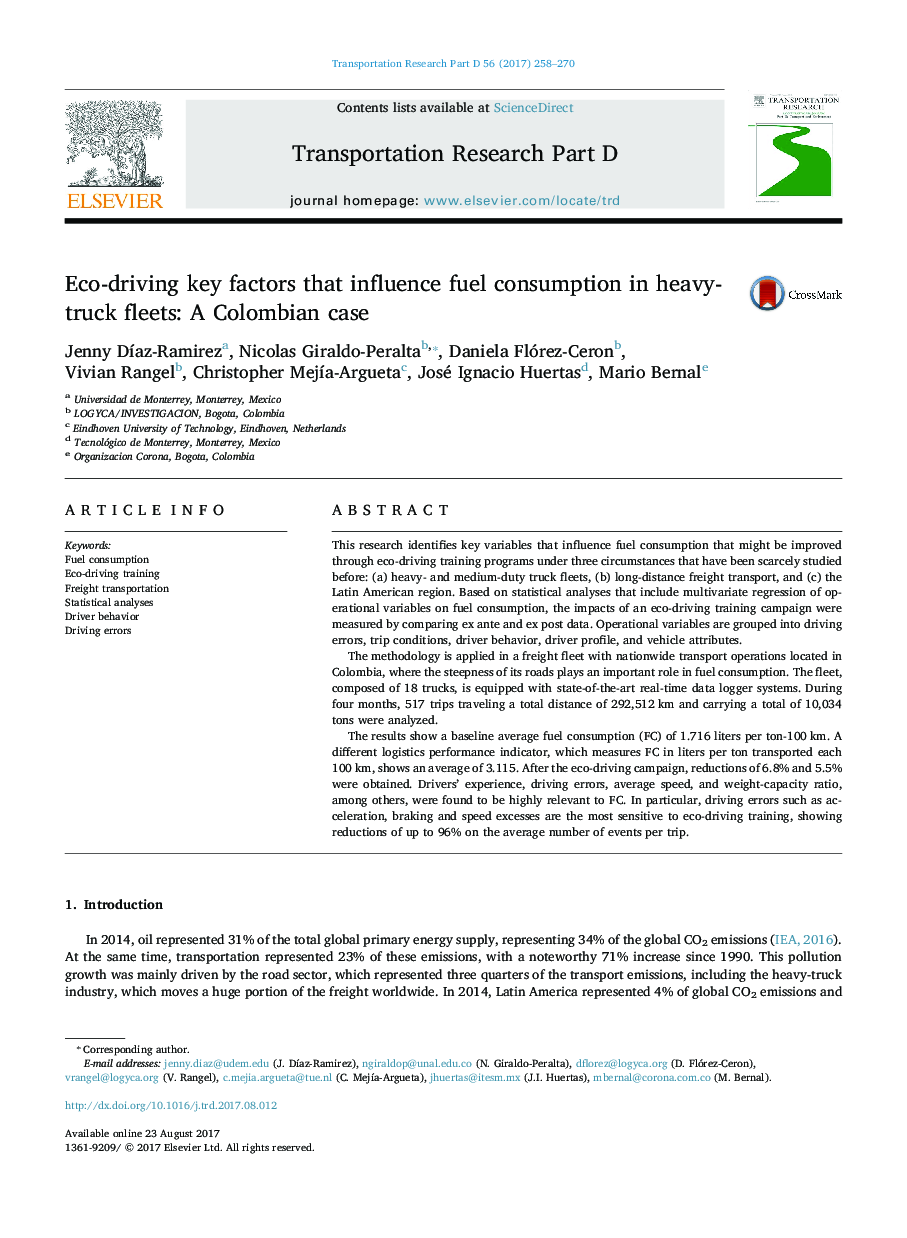| کد مقاله | کد نشریه | سال انتشار | مقاله انگلیسی | نسخه تمام متن |
|---|---|---|---|---|
| 5119346 | 1485868 | 2017 | 13 صفحه PDF | دانلود رایگان |
- Key factors that impact fuel consumption and affected by eco-driving are identified.
- Impact of an eco-driving training campaign on freight heavy-duty truck fleets.
- Reductions in fuel consumption by eco-driving of up to 6.8%.
- Fuel consumption in freight transport is also analyzed in [km/l - ton transported].
- Driving errors are the most sensitive factors to eco-driving training.
This research identifies key variables that influence fuel consumption that might be improved through eco-driving training programs under three circumstances that have been scarcely studied before: (a) heavy- and medium-duty truck fleets, (b) long-distance freight transport, and (c) the Latin American region. Based on statistical analyses that include multivariate regression of operational variables on fuel consumption, the impacts of an eco-driving training campaign were measured by comparing ex ante and ex post data. Operational variables are grouped into driving errors, trip conditions, driver behavior, driver profile, and vehicle attributes.The methodology is applied in a freight fleet with nationwide transport operations located in Colombia, where the steepness of its roads plays an important role in fuel consumption. The fleet, composed of 18 trucks, is equipped with state-of-the-art real-time data logger systems. During four months, 517 trips traveling a total distance of 292,512Â km and carrying a total of 10,034 tons were analyzed.The results show a baseline average fuel consumption (FC) of 1.716 liters per ton-100Â km. A different logistics performance indicator, which measures FC in liters per ton transported each 100Â km, shows an average of 3.115. After the eco-driving campaign, reductions of 6.8% and 5.5% were obtained. Drivers' experience, driving errors, average speed, and weight-capacity ratio, among others, were found to be highly relevant to FC. In particular, driving errors such as acceleration, braking and speed excesses are the most sensitive to eco-driving training, showing reductions of up to 96% on the average number of events per trip.
Journal: Transportation Research Part D: Transport and Environment - Volume 56, October 2017, Pages 258-270
